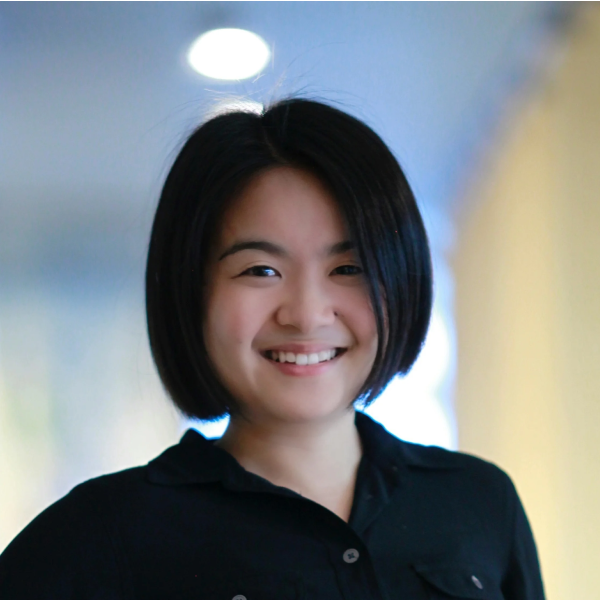The BenchSci team includes many scientists from different disciplines all across the company. Alice Zhang is one of them but she is also a former user of the platform who appreciated it so much that she ended up joining us! This week she is taking over the blog to answer some questions about her fascinating research into cancer and what an R&D Scientist at BenchSci does.
What was your area of research for your Ph.D.?
I worked on breast cancer research. What I did in my project was survey the prevalance, the prognostic impact, and the tumorigenic effects of a specific breast cancer biomarker. Then I did some computational studies, utilizing some high throughput sequencing, proteomics, and clinical data. I also did a lot of experimental studies using animal models, cancer cell lines, and also, genomic editing techniques such as CRISPR, et cetera.
Why did you choose BenchSci?
As a bench scientist for the past 10 years, I had the experience of having to Google the reagents I needed. There are a lot of vendors that come up. I then ended up having to go through several papers, which cited reagents from different vendors, just to find out which one is the best. Reagents are very expensive, some of them cost nearly $1,000, so you really want to make sure that the reagents you use are well cited and they're reliable. When BenchSci emerged in 2017, I started using the antibody platform, which is free for academic users. The platform has the information all consolidated so I could just compare the reagents across vendors and check the published data. It’s all a click away on this platform. It really saved me lots of time. I could actually put that time into my lab work instead. I believe that this is a great tool that would benefit all of us scientists, and I also believe in there's great potential in this company!
That is the first reason I chose BenchSci and the second reason is that I believe my skill set in experimental biology and data science—I build models and pipelines, including some machine learning pipelines—really fit right in with the role that I'm currently doing at BenchSci, which is R&D Scientist. What I currently do is design and test our algorithm and machine learning pipelines, that are used to extract the data from literature in an automated way. Then I collaborate with different teams to scale it up and give input to the front-end developer as a fellow scientist, so I feel like I can put a lot of my skill set and past knowledge into use in this job.
What's an interesting project you've gotten to work on so far?
I'm in charge of automating the CRISPR pipeline from a previous version that dated back to 2020, which is about two years ago now. My research is basically an iterative process, which includes introducing a new machine learning model and new algorithms, evaluating these algorithms and models, and then tweaking them to see how to make them better. That way our new CRISPR pipeline will automatically generate the new and accurate data we want to pull into the front end, and our users can simply click and get all the information they are looking for.
CRISPR technology is pretty new, but it has already transformed research in so many different ways. It’s also one of the fastest discoveries to win a Nobel Prize, that's how impactful it is. There's constant development of new uses of CRISPR, even in these past couple of years. That's why it's so exciting to work on this project because there are so many new things that can be captured and put into the platform.
What is the biggest misconception about your job?
When people think about a scientist, they probably think of someone who's wearing a lab coat and doing an experiment with test tubes and pipettes. There's another type of biologist called a computational biologist, or as we sometimes call them dry lab scientists. These are the people who work on computers to make discoveries using big data, for instance, large-scale screens, like drug screens, or multi-omics data. I used to be both. I used to work as a wet lab scientist as well as a dry lab scientist. I consider my current role at BenchSci to be like a dry lab scientist. We're still doing research, but we're doing it on computers to design pipelines, not in a way that requires a lab environment.
What are three words you would use to describe our culture?
I work in a very collaborative environment, that's the first word. I would like to also stress that everything is accessible. If I have a question, I can ask people and people always make it easy for me to ask questions. And then the third one is fast. As a startup, the company grows or even doubles, within half a year sometimes.
What are the advantages of working for a remote-first org for you?
There are a couple of advantages. I like how it saves my commute time, so I can put more time into my actual work. I like that I’ve got flexibility in my schedule. I can actually cook my own lunch every day. I get fresh meals every day. It's really nice, which all leads to increases in happiness and also productivity.
What is your favorite snack?
My favorite snack is a hard one because it varies from time to time. I’m a big snack eater! I like ice cream. I like chocolate, yogurt, cakes, and all that.
–
We’re hiring! If you’re interested in building a great scientific career check out our Careers page or subscribe to our blog to stay up to date with all things BenchSci.
